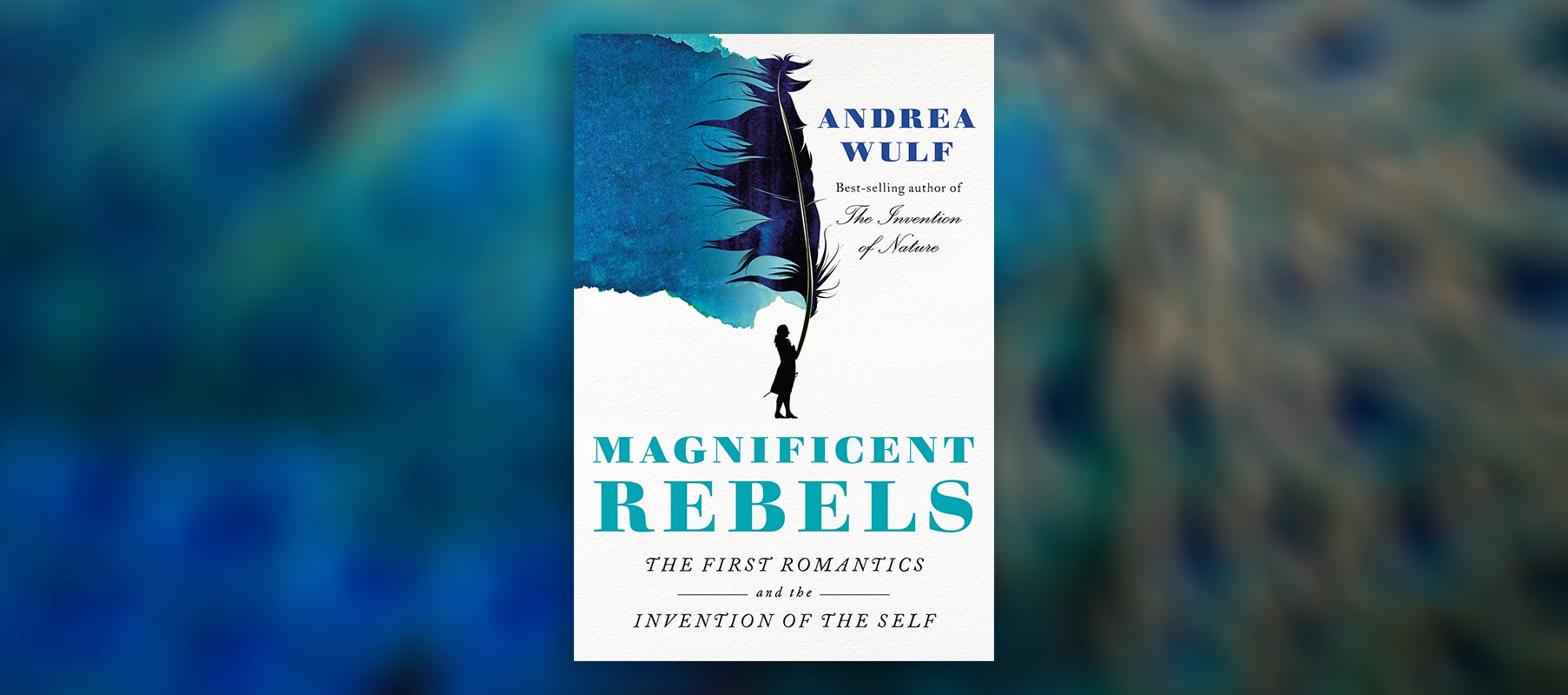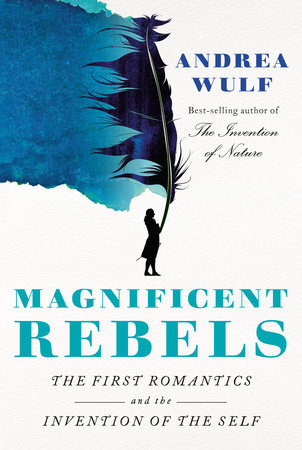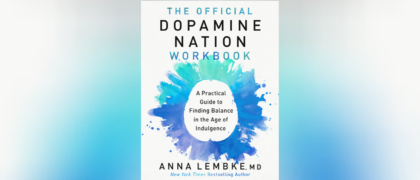Magnificent Rebels is a group biography about a brilliant circle of friends the quiet university town of Jena in Germany in in the 1790s, among them playwrights, poets, writers, and philosophers who put the self at center stage in their thinking, their writing, and their lives. This group of young Romantics included the famous poets Goethe, Schiller, and Novalis; the visionary philosophers Fichte, Schelling, and Hegel; the contentious Schlegel brothers; and, Alexander von Humboldt. At the heart of this group was the formidable Caroline Schlegel, who sparked their dazzling conversations about the self, nature, identity, and freedom. We are still empowered by their daring leap into the self, and by their radical notions of the creative potential of the individual, the highest aspirations of art and science, the unity of nature, and the true meaning of freedom. We also still walk the same tightrope between meaningful self-fulfilment and destructive narcissism, between the rights of the individual and our responsibilities toward our community and future generations. At the heart of this inspiring book is the extremely modern tension between the dangers of selfishness and the thrilling possibilities of free will.
Part III: The Art of Being Selfish
The Jena Set changed our world. They did so irrevocably. It is impossible to imagine our lives, thoughts and way of understanding the world without the foundation of their ground-breaking ideas.
‘Perhaps, Jena was the last truly vital occurrence of its type for centuries to come?’ Schiller wrote to Wilhelm von Humboldt in 1803. He had a point. We might have forgotten this small town in the Duchy of Saxe-Weimar, and its short intellectual reign, but the friends did something utterly new when they boldly placed the self and free will at centre stage. Their ideas have permeated our minds and are ingrained in our being. Fichte put the Ich at the nexus of his philosophy, and it has stayed with us, for better or worse, ever since.
This revolution of the mind shifted not just our perspective of who we are and what we can do but also our place in the world. We have internalised Fichte’s Ich, though we may not have heard of the man himself. We believe we are self-determined – at least, those of us lucky enough to live in democratic states. Yet this freedom brings with it both responsibilities and dangers. The friends in Jena struggled with them, just as we do today.
From the moment the seismic shift rippled out of Jena, people have had to face the pitfalls of this new emboldened self: the meaningless pirouetting around one’s Ich, which ultimately may lead to a view of the world where nothing exists but an inflated self. But while some of the Jena Set’s critics described Fichte’s philosophy as ‘Ich-fetishism’ and as ‘metaphysical egotism’, Fichte himself never intended for his ideas to be a narcissistic celebration of the self. Instead, he always insisted that our freedom was tightly interwoven with our moral obligations. ‘Only those are free,’ he told students during his first lecture series, in 1794, ‘who will try to make everyone around them free.’ Freedom gives us the choice as to how to act and behave, and elevates us above base instincts such as greed, hunger or fear. Freedom always brings along its twin: moral duty.
The choice remains with us. Life is a negotiation between our rights as an individual and our role as a member of a community and our responsibilities towards future generations who will inhabit this planet–living a meaningful life in which we can determine the direction of our path while also being a morally good person. How do we reconcile personal liberty with the demands of society? Are we selfish? Are we pursuing our dreams? Are we treading on someone else’s liberty? Are we looking only after ourselves? Or others? Or both? We have entered a social contract with each other and with our governments, agreeing to abide by laws and conventions – yet this only works if we are free and trust one another at the same time.
The Jena Set believed that we have to be conscious of our selves – we ought to be ‘selfish’ in the sense of being aware of and in control of our own being and free will. Today, when we talk about selfishness, we mean a person obsessed with their own pleasure and profit, concerned only with their own advantages. But seen in its historical context and original conception, the ‘Art of being Selfish’ liberated the Ich with the intention of creating a better society. A society that was founded on individuals who were no longer chained by monarchs and rulers to a predestined place and path but who were in control of their own destiny and identity.
The ‘Art of being Selfish’, in the context of Schelling’s Naturphilosophie, also means understanding one’s place in this great interconnected living organism that is nature. ‘Since we find nature in the self,’ one of Schelling’s students concluded, ‘we must also find the self in nature.’ Being selfish in that sense means comprehending and recognising the concept of unity with the universe. Not harming the planet therefore means not harming yourself. The ‘age of Introversion’, Ralph Waldo Emerson said in 1837, referring to the new focus of the Ich, was easily criticised, but it was ‘a very good one, if we but know what to do with it’.
‘The most wonderful phenomenon, the eternal fact, is our own existence’, Novalis wrote in 1797. Life’s most important task was to grasp the self because ‘without perfect self-understanding we will never learn truly to understand others’. Let Novalis’s sentence roll in your mind for a moment. What he meant was that we’re morally obliged to turn inwards in order to be good members of society. Only if we are fully aware of ourselves – of our needs, our wishes, and of our thoughts – can we truly embrace the other. This emphasis on the Ich means being ‘self aware’ as the prerequisite for ‘being aware and concerned for the other’. Only through self-awareness can we feel empathy with others. Only through self-reflection can we question our behaviour towards others. Self-examination in that sense is for the greater good—for us, for our wider community, for society in general and for our planet.
The Jena Set gave wings to our minds. How we use them is up to us.
Copyright © 2022 by Andrea Wulf. All rights reserved. No part of this excerpt may be reproduced or reprinted without permission in writing from the publisher.
 Andrea Wulf was born in India and moved to Germany as a child. She is the award-winning author of several books, including Founding Gardeners, Brother Gardeners, and The New York Times best seller The Invention of Nature, which has been published in twenty-seven languages and won fifteen international literary awards. Wulf has written for many newspapers and magazines, including The New York Times, The Guardian, the Los Angeles Times, The Wall Street Journal, and The Atlantic. She’s a member of PEN America Center and a Fellow of the Royal Society of Literature. She lives in London.
Andrea Wulf was born in India and moved to Germany as a child. She is the award-winning author of several books, including Founding Gardeners, Brother Gardeners, and The New York Times best seller The Invention of Nature, which has been published in twenty-seven languages and won fifteen international literary awards. Wulf has written for many newspapers and magazines, including The New York Times, The Guardian, the Los Angeles Times, The Wall Street Journal, and The Atlantic. She’s a member of PEN America Center and a Fellow of the Royal Society of Literature. She lives in London.






